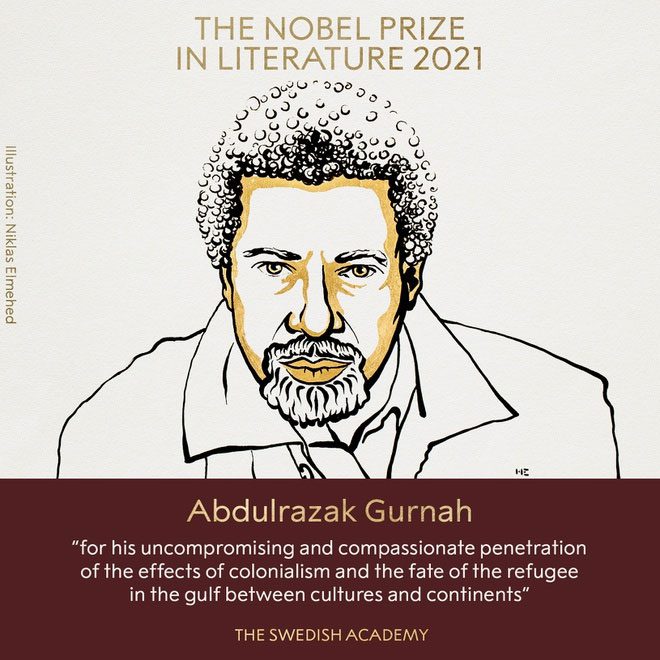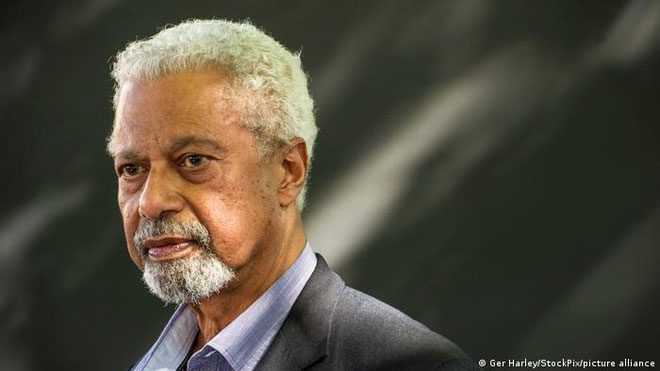Tanzanian-born author Abdulrazak Gurnah, known for his writings on the experiences of refugees, migration, and post-colonial circumstances, is the recipient of the 2021 Nobel Prize in Literature.
The Nobel Committee announced on October 7 that the 2021 Nobel Prize in Literature was awarded to novelist Abdulrazak Gurnah “for his uncompromising and compassionate penetration of the effects of colonialism and the fate of the refugee in the gulf between cultures and continents.”
Born in 1948 and raised on the island of Zanzibar, Gurnah sought asylum in England in the late 1960s. Until his recent retirement, he was a Professor of English and Postcolonial Literature at the University of Kent, Canterbury.
Gurnah began writing at the age of 21 while in exile and has since published ten novels and several short stories. Refugees are a recurring theme in his work. Although Swahili is his mother tongue, English has become his literary tool.
According to the British Council Literature, Gurnah’s characters are caught between cultures and continents, always living in a state of insecurity that they can never resolve. They must continuously reinvent themselves to fit into their new environments. They constantly seek ways to reconcile their new lives with their pasts.
Like his characters, Gurnah had to leave his homeland of Zanzibar and migrate to England at the age of 17, with identity being a constantly shifting issue. His protagonists always strive to disrupt the fixed identities of those they encounter in their new locations.

Portrait of Abdulrazak Gurnah. (Photo: The Royal Swedish Academy).
Cultural critic Paul Gilroy pointed out: “When national and ethnic identities are represented and expressed as pure, exposure to difference threatens these identities, diluting and affecting their precious purity, making them susceptible to contamination. One must be wary of intersections as mixtures and movements.” The main characters in Gurnah’s novels embody the contamination of identity through their differences.
For instance, when the unnamed narrator in Admiring Silence (1996) visits his girlfriend’s parents to inform them that their daughter is pregnant, they look at him with hatred because their daughter will “have to live with a kind of pollution for the rest of her life. She will not be able to become an ordinary English woman to simply live in England among the English anymore.”
As an immigrant to a foreign land, Gurnah is aware that: “for some of my potential readers, there is a perception of me that I must take into account. I realize that I will represent myself to readers who perhaps see themselves as the norm, without culture or ethnicity, without difference.”

Refugees are a recurring theme in his work. (Photo: DW).
Abdulrazak Gurnah is conscious of breaking conventions and changing colonial perspectives to highlight the viewpoints of indigenous communities. Thus, his novel Desertion (2005) about infidelity starkly contrasts with what he calls “romantic love.”
His fourth novel, Paradise (1994), marked his breakthrough as a writer, developed from a research trip to East Africa around 1990. It is a coming-of-age story and a tragic love tale where clashes occur between different worlds and belief systems.
Last year, the 2020 Nobel Prize in Literature was awarded to American poet Louise Glück “for her unmistakable poetic voice, which with austere beauty makes individual existence universal.”
Each year, the Nobel Committee awards prizes in six fields: physiology or medicine, physics, chemistry, literature, economic sciences, and peace. Nobel laureates receive a certificate, a Nobel medal, and a cash award of approximately $1.1 million.
- 2021 Nobel Prize in Chemistry honors research on asymmetric organic catalysts
- Three scientists awarded the 2021 Nobel Prize in Physics
- Discoveries about temperature and touch win the 2021 Nobel Prize in Physiology or Medicine
- 2021 Nobel Peace Prize honors two journalists from the Philippines and Russia


















































